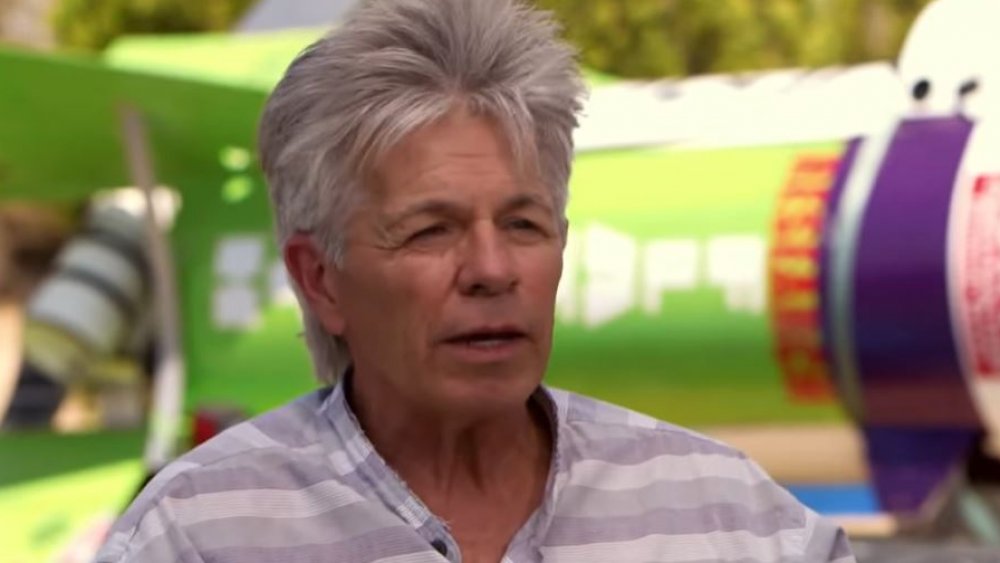Daredevil 'Mad' Mike Hughes Dies In Homemade Rocket Crash
As NPR tells us, on February 23, 2020, former stuntman and noted rocket-themed daredevil "Mad" Mike Hughes perished in an equally rocket-themed accident in Barstow, California. The 64-year-old was aboard his latest steam-powered rocket in a stated attempt to reach the height of 5,000 feet, when it unexpectedly crashed on the ground after the launch went awry.
According to eyewitness Justin Chapman, the crash apparently happened because a ladder scratched the rocket during takeoff. He says the impact "ripped off a parachute can, which deployed the parachute, which got caught in the thrust of the rocket and kind of took the rocket off course a little bit." This was enough to make things go fatally wrong, and the 50 to 60 people (and one Science Channel film crew) present had to witness the rocket careen into the ground roughly half a mile away from the launch site.
Why did "Mad" Mike Hughes keep making rockets?
Now, we're aware that there are several Darwin Award elements at play, here. Hughes not only willingly built and rode dangerous DIY rockets, but he was also a noted Flat Earther, and reportedly embarked on his rocketry shenanigans to truly find out whether the Earth was shaped more like a cantaloupe than a pancake. In fact, he was something of a poster boy for the movement: he has embarked on many colorful Flat Earth-themed shenanigans, had his own show on Flat Earth Radio, and there's even a 2019 documentary about his "mission to prove Flat Earth."
However, as Space.com attests, there's far more to Hughes' story than the whole Flat Earth thing. While he said that he indeed believed the Earth was flat (though also freely admitted that he had no idea about its true shape), he has specifically stated that his rockets are a completely separate thing, meant to inspire people. "This Flat Earth has nothing to do with the steam rocket launches," he said. "It never did, it never will. I'm a daredevil!" With that in mind, when you forget his association with that particular movement, what we have here is a man who was fully aware that he has roughly a 50-50 chance to walk away from the launch. A man who injured his back in a rough landing from a previous rocket flight just two years earlier. And a man who, at 64 years old, built a new rocket and soared right back to the skies anyway, because that's what he wanted to do: Race ever so nearer to space. Regardless of what you otherwise think about the man, that sheer conviction has to be worth a tip of the hat, at the very least.

